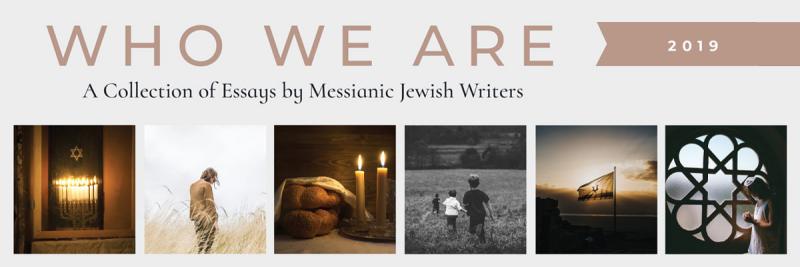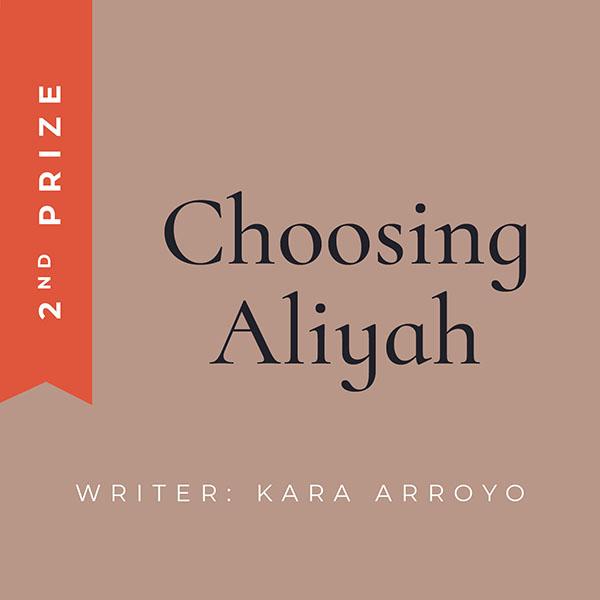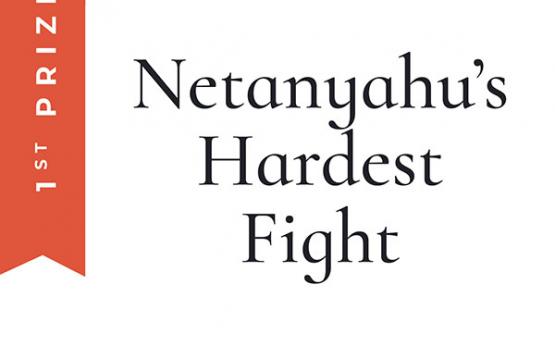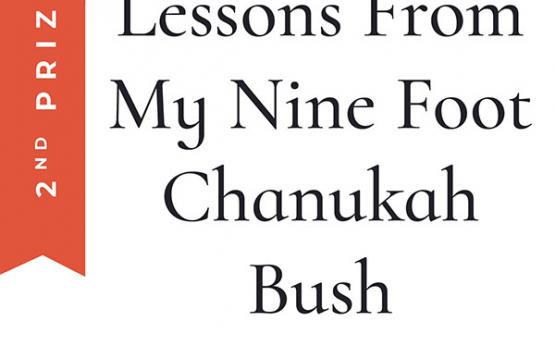
When I first sat down to write our Aliyah journey, I remembered how its beginning felt like we were living in a dream. I wrote about the Sukkot service where we received our call home to Israel – I remember the exact moment He got ahold of us. I wrote about how our house miraculously sold days after we landed in Israel, and how just three weeks later, we walked out of the Ministry of Interior as Israeli citizens. But I deleted all of that. While I needed those words like long overdue therapy, those thousands of strung-together characters were but the beginning of the real life epic God is writing for our family of six.
I want to take you past that dreamy beginning. I want you to see Aliyah through my eyes, as a new immigrant, not two years into the experience. I want you to see without the rose-colored glasses we put on when we behold the Aliyah dream painted by the beauty of Scripture, telling the breathtaking love story of God’s faithfulness to His people. I want you to see beyond the highlight reel with the filter that blurs the imperfect. I want to take you past the feel-goods of this life we’re living and give you a look into what it actually means to choose Aliyah.
Choosing Aliyah is choosing to become an immigrant. It seems like a pretty obvious statement, but have you ever really looked at it that way? I never did. Not once. While I
knew I was immigrating to Israel, I had disconnected from the idea that I would become an immigrant. My picture of my new life was instead neatly packaged in the beauty of God’s promises. Being an immigrant isn’t a neat and tidy existence. In fact, it is often a crazy mess and a struggle in the most basic of interactions and tasks. Being an immigrant is surrendering everything to hold on to hope with two hands.
Choosing Aliyah is a decision to surrender your ability to know. I have never experienced such a lesson in humility. When we lived in the U.S., I knew how to do everything. If I didn’t know, I could figure it out on my own. I was independent and proud of it. I was educated and excelled at anything I set my mind to. In my context, in my culture, I knew how to know. I never really understood the power and privilege of knowledge until I felt its loss. This move was our choice. No one forced it on us. It was a choice to obey, follow, and trust our God as we never had before. It’s a decision I don’t regret. But that doesn’t mean that I started this journey with an understanding of what I signed up for, or that I don’t struggle with my lack.
Let’s be real. I don’t know how to be an Israeli. I don’t know how to relate to this culture that I was convinced I understood. There’s a language painted so deeply in my heart that can’t seem to find its way to my tongue. I don’t know how to read it, write it, or even speak it. Now I know that I don’t know how to relate to this culture that I was so convinced I understood.
I don’t know how to sign my kids up for school or help my third-grader with his math homework. I don’t know how to be there for my little ones who are now more Israeli than American. I don’t know how to help my children’s friends feel comfortable around me or how to tell them how much their Yeshua loves them. I am constantly learning to lay down my pride and admit that I need help; that I can’t walk this road alone.
Choosing Aliyah is learning to be okay with not being okay. It’s grief – not simply the grief of separation or sorrow for the difficulty of the moment, but it’s a grieving of memories I will never live. I grieve that I missed the birth of my niece and that I won’t be there to bake the cake for my dad’s 70th birthday. I grieve that my children won’t grow up next door to their grandparents. I grieve for life lost with those I love because I made a choice to love God by obeying above all.
Choosing Aliyah is choosing an identity crisis. In America, I was a young, stay-at-home, homeschooling mom of four small children with a successful husband that traveled for work. My husband and I were elders and worship leaders in the congregation founded by my in-laws. We knew everyone. We walked out our faith in the way we thought was right, and honestly weren’t always receptive towards those who did it differently. We loved God, loved our family, loved our friends, and loved our community. And while part of me is very proud of all these things, when they were stripped away, I was left questioning who I really was.
Overnight, I became a mom going to language school while her four kids jumped right into the Israeli public school system. I mean, did my children even need me anymore? I went from relating to God through worship, to not being able to even hum the tunes of these new, unfamiliar songs. How can I connect to worship that I don’t understand and at the same time feel frustrated and confused because I don’t completely relate to all that was so meaningful to me back home? The way I expressed my faith as an American Messianic Jew doesn’t fit here. How do you even explain that when on paper the only real difference is geography? But it’s not. How do I define and find myself when everything has changed? I have changed.
Aliyah isn’t some dreamy fantasy. The fullness of Aliyah can’t be boiled down to words of promise on a page. It’s real, messy, raw, and beautiful. It’s life, it’s hard, and it’s not what we expected. Yet it’s a journey and learning process that I wouldn’t change for anything. It’s shaken me out of my comfort zone and pushed me to find security in Him. This journey is about discovering my weaknesses and leaning into God’s strength. It’s about seeing myself through God’s eyes and finding freedom in who He is.
Aliyah is a calling bigger than me and a destiny greater than my struggles. We had to make the choice to heed the call to return. We had to leave our father’s house, eyes set to the unknown without looking back. I may never truly know how to belong to this land and this people, but every day, I choose to dig my shocked roots into this dry, rocky soil and thrive in the land that has so completely captured my heart.






